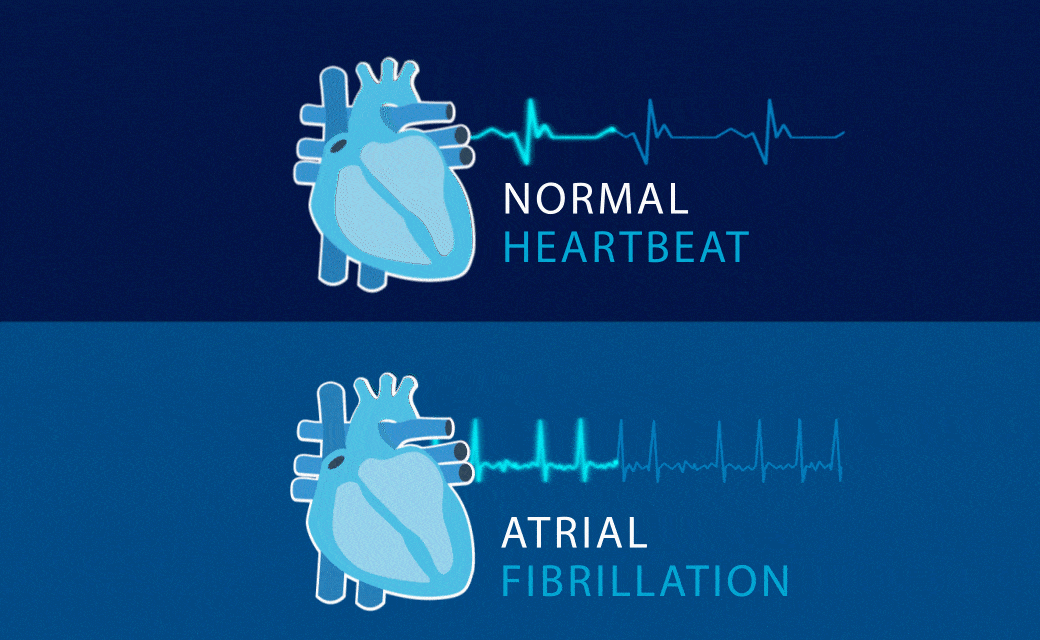WHAT IS ATRIAL FIBRILLATION? (AF)


What is atrial fibrillation? (AF)
Atrial Fibrillation is an irregular heart rate that affects the upper chambers of the heart (atria). It prevents blood from being pumped efficiently to the rest of your body.


Normal heart rhythm
Atrial Fibrillation Rhythm
Types of atrial fibrillation (A.F.)

Comes and goes. It stops on its own.
It occurs from minutes to days.
In this stage, AF has more options for treatment.

It lasts for more than a week.
It will not stop on its own.
It can become permanent.
Treatment options are less than with paroxysmal AF

Continuous atrial fibrillation; the heart cannot return to its normal rhythm. Treatment options are very limited

Comes and goes. It stops on its own.
It occurs from minutes to days.
In this stage, AF has more options for treatment.

It lasts for more than a week.
It will not stop on its own.
It can become permanent.
Treatment options are less than with paroxysmal AF

Continuous atrial fibrillation; the heart cannot return to its normal rhythm. Treatment options are very limited
What are the causes of ATRIAL FIBRILLATION? (A.F.)

The causes of AF are often unclear. In some cases, AF may be the result of:
- Heart abnormality from birth
- Damage to the heart structure from a previous heart attack
- Heart valve problems
- Aging process (elderly patients have more AF)
- Atrial size (bigger atria have more chance of developing AF)
People with otherwise normal hearts may also develop AF.
Risk factors
NON-CONTROLLABLE

- Family history
- Advancing age
- Heart disorders from birth
CONTROLLABLE

- High cholesterol
- High blood pressure
- Excess weight
- Smoking
- Lack of exercise
- Alcohol intake
- Sleep apnea
- Caffeine
- Some medications
NON-CONTROLLABLE

- Family history
- Advancing age
- Heart disorders from birth
CONTROLLABLE

- High cholesterol
- High blood pressure
- Excess weight
- Smoking
- Lack of exercise
- Alcohol intake
- Sleep apnea
- Caffeine
- Some medications
Share this information:
When discussing with your doctor, you may want to use this document to help guide the conversation
When discussing with your doctor, you may want to use this document to help guide the conversation
Medtronic
Engineering the extraordinary
UC202117449 EE
Take care of your heartbeat is an educational initiative designed to inform people about heart rhythm disorders. It is brought to you by Medtronic.
Information on this site does not constitute medical advice.
Always consult with your physician about treatment options and if you have any questions or concerns about your health.
Last updated February 2023
Medtronic
Engineering the extraordinary
UC202117449 EE
Last updated February 2023


